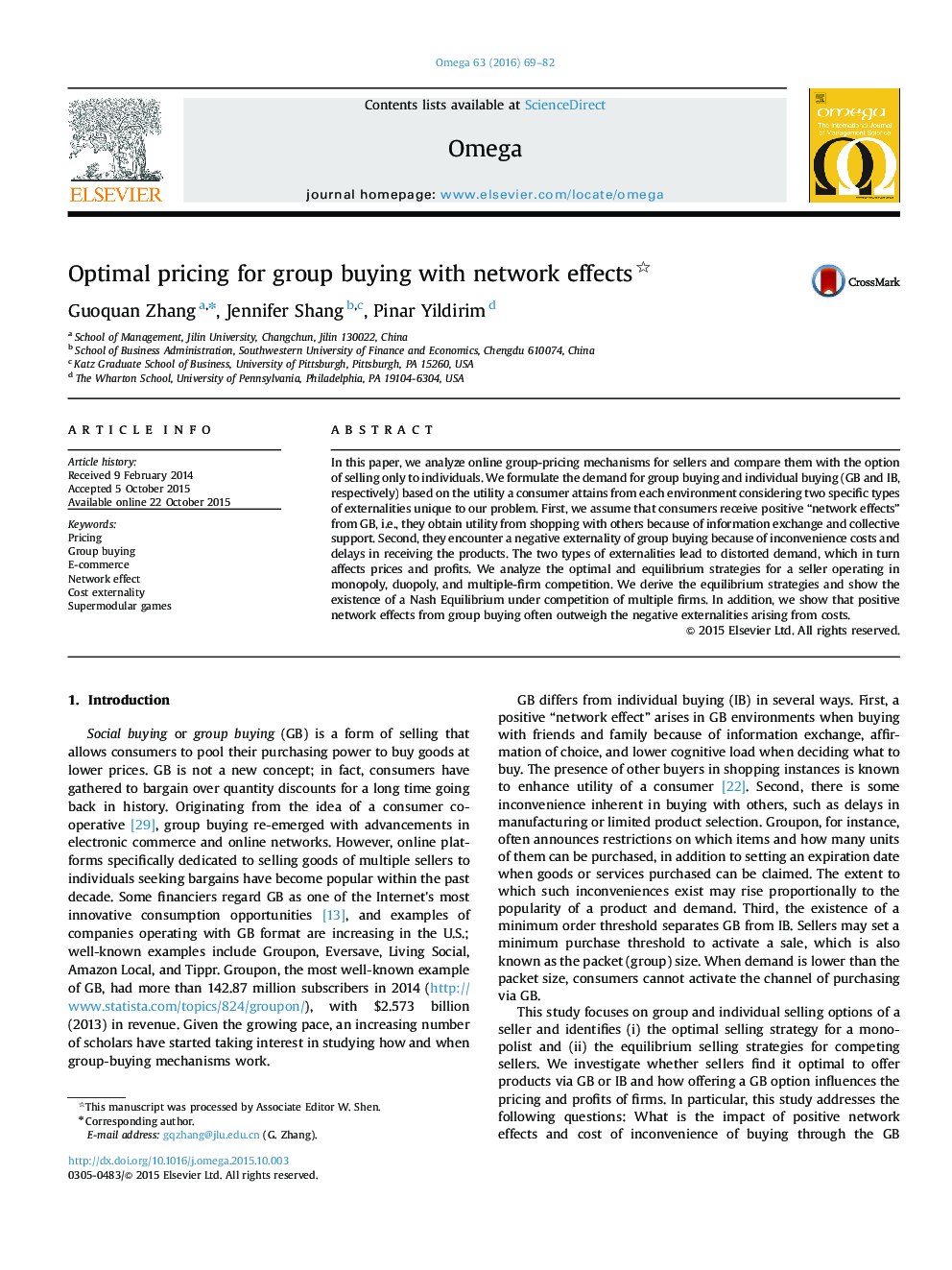| Article ID | Journal | Published Year | Pages | File Type |
|---|---|---|---|---|
| 1032386 | Omega | 2016 | 14 Pages |
•Formulate and analyze online group-pricing mechanisms.•Consider participation externalities and cost externalities.•Develop optimal strategies for a seller operates under various conditions.•Prove the existence of a Nash Equilibrium under competition of multiple sellers.•Show positive utility from group buying surpasses negative inconvenience externality.
In this paper, we analyze online group-pricing mechanisms for sellers and compare them with the option of selling only to individuals. We formulate the demand for group buying and individual buying (GB and IB, respectively) based on the utility a consumer attains from each environment considering two specific types of externalities unique to our problem. First, we assume that consumers receive positive “network effects” from GB, i.e., they obtain utility from shopping with others because of information exchange and collective support. Second, they encounter a negative externality of group buying because of inconvenience costs and delays in receiving the products. The two types of externalities lead to distorted demand, which in turn affects prices and profits. We analyze the optimal and equilibrium strategies for a seller operating in monopoly, duopoly, and multiple-firm competition. We derive the equilibrium strategies and show the existence of a Nash Equilibrium under competition of multiple firms. In addition, we show that positive network effects from group buying often outweigh the negative externalities arising from costs.
